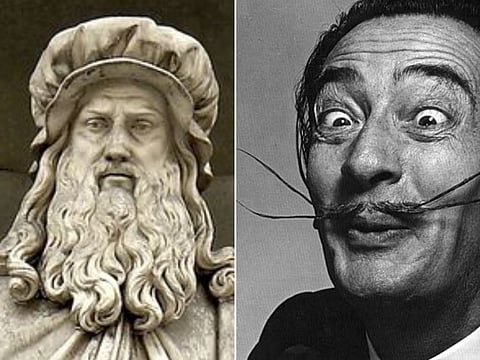Nap like Da Vinci and Dali: 20 minutes to genius ideas
Science proves micro-naps unlock creativity, sharpen memory, and fuel “Eureka” moments

Ever been stuck staring at your screen, begging your brain for ideas?
Science says the answer isn’t more coffee — it’s a nap.
Micro-naps — defined as very short sleep episodes lasting between 1 and 20 minutes — have attracted increasing interest in sleep science due to their potential restorative value without the drawbacks of longer naps.
Not just any nap, but a short 20-minute “micro-nap” that can flip the creativity switch in your head.
The nap of geniuses
Researchers call it the magic of the N1 and N2 sleep phases — that sweet spot between being awake and drifting off, where your brain makes weird, wonderful connections.
“The result is a more plastic and receptive brain to new ideas,” explained researcher Anika Löwe to El País.
History’s greatest minds were way ahead of us. Leonardo da Vinci swore by 20-minute naps every four hours.
If you want to use a micro-sleep in your life, it can help you with at least two types of creative tasks, even if you don’t know at what stage [of sleep] you are.Delphine Oudiette, Paris Brain Institute
Salvador Dalí would snooze with pencils in his hand, waking when they — right at the peak of creative brilliance.
Even Thomas Edison was a micro-nap fan, clutching metal balls to jolt himself awake with a thud.
And it’s not just legends.
A University of Hamburg study found that 85.7% of people who napped for 15–20 minutes (entering N2 sleep) cracked hidden shortcuts in problem-solving tests — compared to just 63.6% who only hit lighter sleep.
Delphine Oudiette from the Paris Brain Institute summed it up: “If you want to use a micro-sleep in your life, it can help you with at least two types of creative tasks, even if you don’t know at what stage [of sleep] you are.”
So next time you’re stuck, don’t push harder—nap smarter. You might just wake up with your own “Eureka!” moment.
Silent power: Effects of micronaps
Research suggests that even ultra-brief naps can enhance alertness, mood, and cognitive performance, particularly under conditions of sleep restriction or prolonged wakefulness.
The following studies show its hidden power:
Enhanced alertness
Tietzel and Lack conducted one of the foundational studies on ultra-brief naps published in 2001, which shows the power of micro-naps to boost cognitive performance.
What rhey: a 10-minute nap significantly reduced subjective sleepiness and improved reaction time compared to a no-nap control.
Importantly, the beneficial effects appeared almost immediately after waking and lasted up to two hours, highlighting the efficiency of short naps relative to longer ones, which often induce sleep inertia.
Restoration — without sleep inertia
In 2006, another research conducted by Brooks and Lack further examined nap durations following sleep restriction. Their results: 5- to 10-minute naps were particularly effective in boosting alertness and mood without the grogginess observed in longer naps.
This finding supports the idea that micro-naps are uniquely suited for situations where individuals require a rapid recovery of performance and cannot afford extended rest.
Memory benefits
Hayashi, Ito, and Hori (1999) investigated the psychophysiological effects of short naps, showing that even brief sleep episodes embedded within a 20-minute nap opportunity improved performance on mental tasks and stabilized EEG markers of alertness.
The data suggest that short naps may enhance working memory and attention, particularly during sustained cognitive demands.
Takeaways
The evidence indicates that "micro-naps" provide measurable benefits in alertness, mood, and cognitive function.
Unlike longer naps, they avoid significant sleep inertia, making them a practical strategy for combating fatigue in occupational, academic, and clinical contexts.
While more research is needed to understand their neurobiological mechanisms, micro-naps represent an efficient intervention for short-term performance restoration.
Sign up for the Daily Briefing
Get the latest news and updates straight to your inbox







